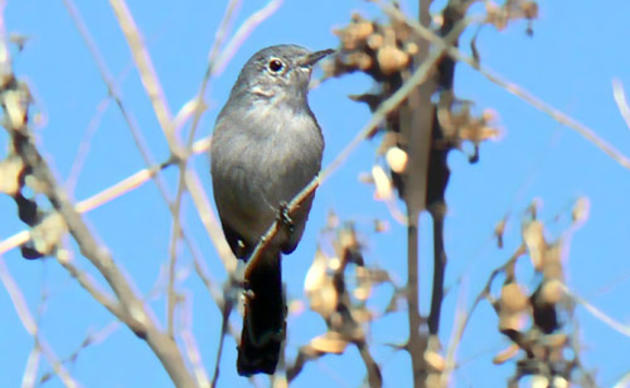Twelve weeks ago, I was writing myself an introduction for the Audublog. Now that my summer Schneider Fellowship with Audubon California has come to a close, I am writing to say goodbye and to thank you for learning about birds, conservation and renewable energy with me.
From shadowing Audubon California’s Director of Renewable Energy Garry George to meeting dedicated chapter members across the state, I have learned just how inspiring the people of Audubon California are. In telling the story of California Gnatcatchers’ survival skills for shrinking habitat and Zebra Finches’ adaptations for warming climate, I have also learned just how inspiring birds can be.
With these stories and many more, my main goal has been to share how the Audubon California community is working to solve climate change to protect birds and humans alike—and do so in a way that doesn’t harm more birds. This theme has been present in my posts and is explored in more depth on the newly-launched Wildlife-Friendly Renewable Energy page on our website.
Overall, am so pleased to say I am leaving Audubon California more optimistic about our energy future than ever. Audubon California is helping fight the good fight against climate change in really critical ways. Whether that’s working with wind companies taking serious bird-protection measures to aiding the Bureau of Land Management in paving the way for more conservation areas while still fast-tracking renewable energy, we are seeing success and looking for more ways to develop smart renewable energy.
Although I will no longer be posting myself, I am eager to join our readers and keep learning about Audubon California’s progress in the future. A huge thank you to everyone that has supported me at Audubon California—especially my manager and bird nerd extraordinaire Daniela Ogden—as well as Stanford Professor Jane Woodward, who generously funds the Schneider Fellow Program.
By Ada Statler-Throckmorton
Raise your voice for California birds
Become an Audubon California activist. Subscribe to our action alerts and we'll send you information about saving the California Gnatcatcher and other birds facing threats.




